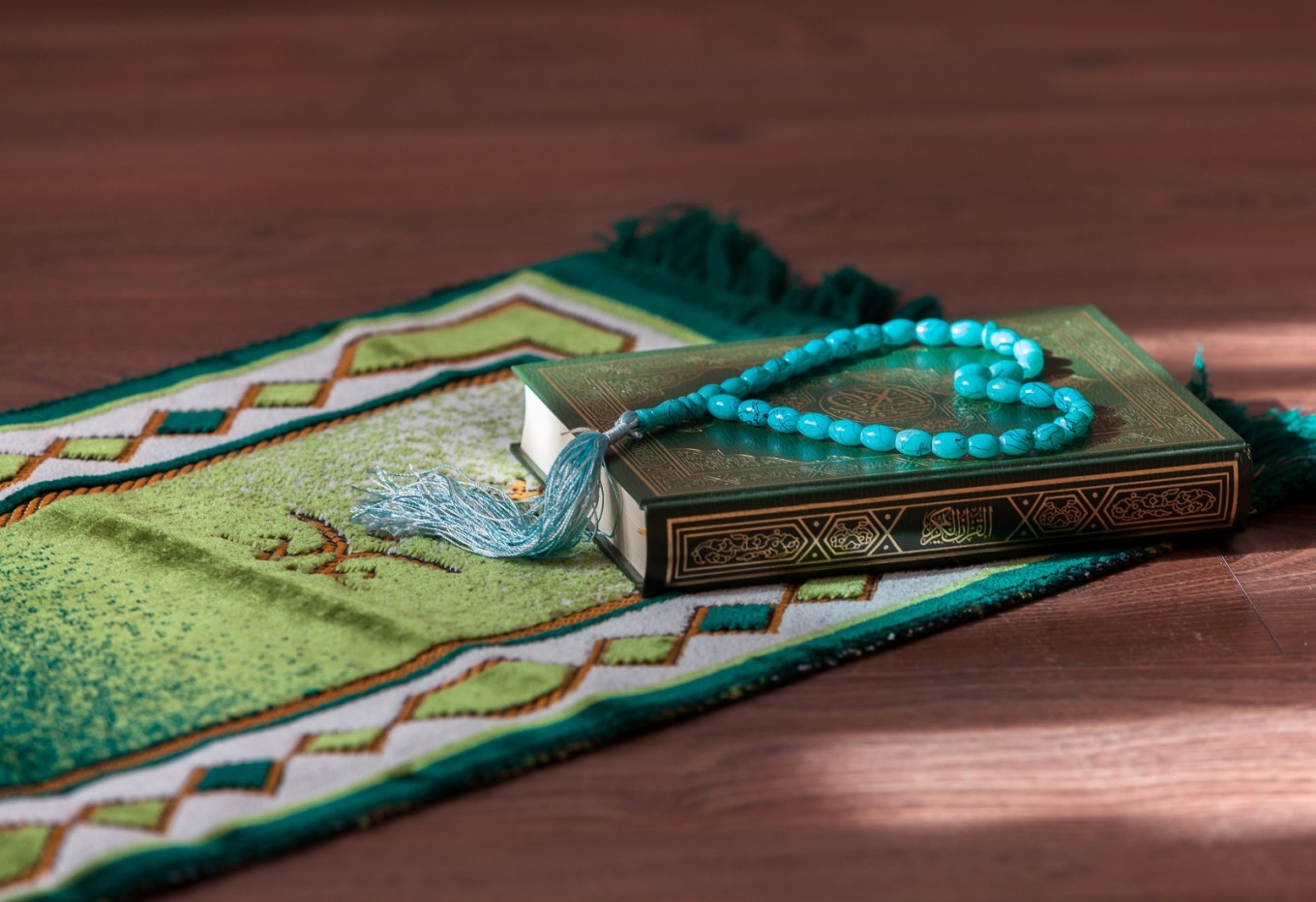Islam Nusantara: A soft power diplomacy
Islam, as widely practiced in Indonesia and much of Southeast Asia, has incorporated local cultures, traditions and local wisdoms to build an identity distinct from Islam found in the Middle East, where the religion originated.
Change Size
 Islamic illustration (Shutterstock/File)
Islamic illustration (Shutterstock/File)
I
slam, as widely practiced in Indonesia and much of Southeast Asia, has incorporated local cultures, traditions and local wisdoms to build an identity distinct from Islam found in the Middle East, where the religion originated.
Moderation and tolerance are among the distinguishing characteristics of the practices of Islam Nusantara (Islam of the Archipelago), as coined by the country’s largest Islamic organization, Nahdlatul Ulama (NU).
Following the precept of Islam rahmatan lil ‘alamin (Islam as a blessing for all creations), Indonesia, as the country with the world’s largest Muslim population, is embarking on spreading the peaceful message of Islam to the rest of the world. The NU and Muhammadiyah, two of Indonesia’s largest Muslim organizations, have started their campaigns. While the NU campaigns for Islam Nusantara, Muhammadiyah has been promoting the concept of al-wasatiyyah (middle path) in Islam, which also emphasizes on moderation and tolerance. More recently, Muhammadiyah has come up with the concept of progressive Islam.
The government could follow suit by promoting Islam Nusantara as an extension of its now well-known soft power diplomacy of organizing interfaith dialogues. Currently, Indonesia engages with no less than 31 countries in dialogues involving their religious leaders, including, among others, Russia, Finland and India.
The new terminology of Islam Nusantara actually shares the values of Islam that had taken root in this part of the world long before the establishment of Indonesia as a modern nation-state. The concept is not an alternative to Islam’s four main schools of thought — Shafi’i, Hanafi, Hambali and Maliki — but more about the way Islam is practiced, which emphasizes moderation, tolerance and non-violence. Amin Kurdi, a grand imam of the Lebanon State Mosque, said Islam Nusantara embodied the values of Islam rahmatan lil ‘alamin.
These values have attracted religious leaders in Afghanistan to adopt Islam Nusantara as part of the peace process and conflict resolution in the war-torn country. With the support of the NU, Afghan clerics founded the Nahdlatul Ulama Afghanistan (NUA) in June 2014. The organization now has the support of some 6,000 clerics and has opened branch offices in 22 out of 34 provinces across Afghanistan.
The NUA has taken on the task of promoting peace and stability by spreading Islam’s messages of moderation, tolerance, justice, attawazun (balance) andal-musharaka (participation). The NUA works with other Afghan elements in promoting peace, reconciliation, tolerance, non-extremism and brotherhood.
They are countering extremism and radicalism that have perpetually disrupted peace there.
Other countries like Lebanon, Belgium, Russia, Sudan and Turkey have also shown interest in following the footsteps of Afghanistan, citing their impression of the NU as a role model thanks to its Islam Nusantara concept. Belgium is reportedly looking at the possibility of bringing the NU clerics to serve as imam in its 168 mosques for its small but growing Muslim community.
There is a growing recognition that Islam Nusantara as a concept can create an atmosphere of peaceful coexistence and tolerance in a heterogeneous society, not only in Indonesia, but also globally. Islam Nusantara can help stem Islamophobia in many parts of the world, largely fueled by the rise of extremism often in the name of Islam.
By voicing moderation and tolerance, Islam Nusantara challenges the rigid and strict interpretation of Islam that often leads to radicalism and extremism.
An enabling environment that is free from any form of sectarian conflicts is a common concern among countries across the world.
Marsudi Syuhud, a prominent NU figure, said Islam Nusantara had become a reference for countries trying to practice the values of Islam rahmatan lil ‘alamin. They are impressed by how moderate and tolerant Islam in Indonesia has helped to promote such values as peace, modesty and cultural respect.
The search for a more peaceful brand of Islam gives Indonesia the opportunity to promote Islam Nusantara globally. Already there are supporting elements for Indonesia to consider it a form of soft power diplomacy: Islam Nusantara as the guardian of pluralism and minorities is a proven model to counter religious extremism and radicalism; as a value system, it promotes coexistence with local cultures where it is embraced, and often benefits from local wisdoms; promoting Islam Nusantara will benefit from the NU’s overseas special chapters in 27 countries, including Australia, Belgium, and Canada; and the International Summit of Moderate Islamic Leaders, which the NU leads, is pivotal in promoting Islam Nusantara abroad.
Promoting Islam Nusantara abroad can be part and parcel of building Indonesia’s image and intellectual leadership as the country with the world’s largest Muslim population. Further, Islam Nusantara can promote perpetual peace and world order as mandated by our Constitution.
Learning from Afghanistan’s experience, promoting Islam Nusantara can use the same mechanism, namely through citizen diplomacy. In this regard, the NU stands at the forefront in collaboration with its potential foreign partners.
***
The writer is the directorof the Center of Policy Analysis and Development on Asia Pacific and Africa Regions at the Foreign Ministry. The views expressed are his own.









